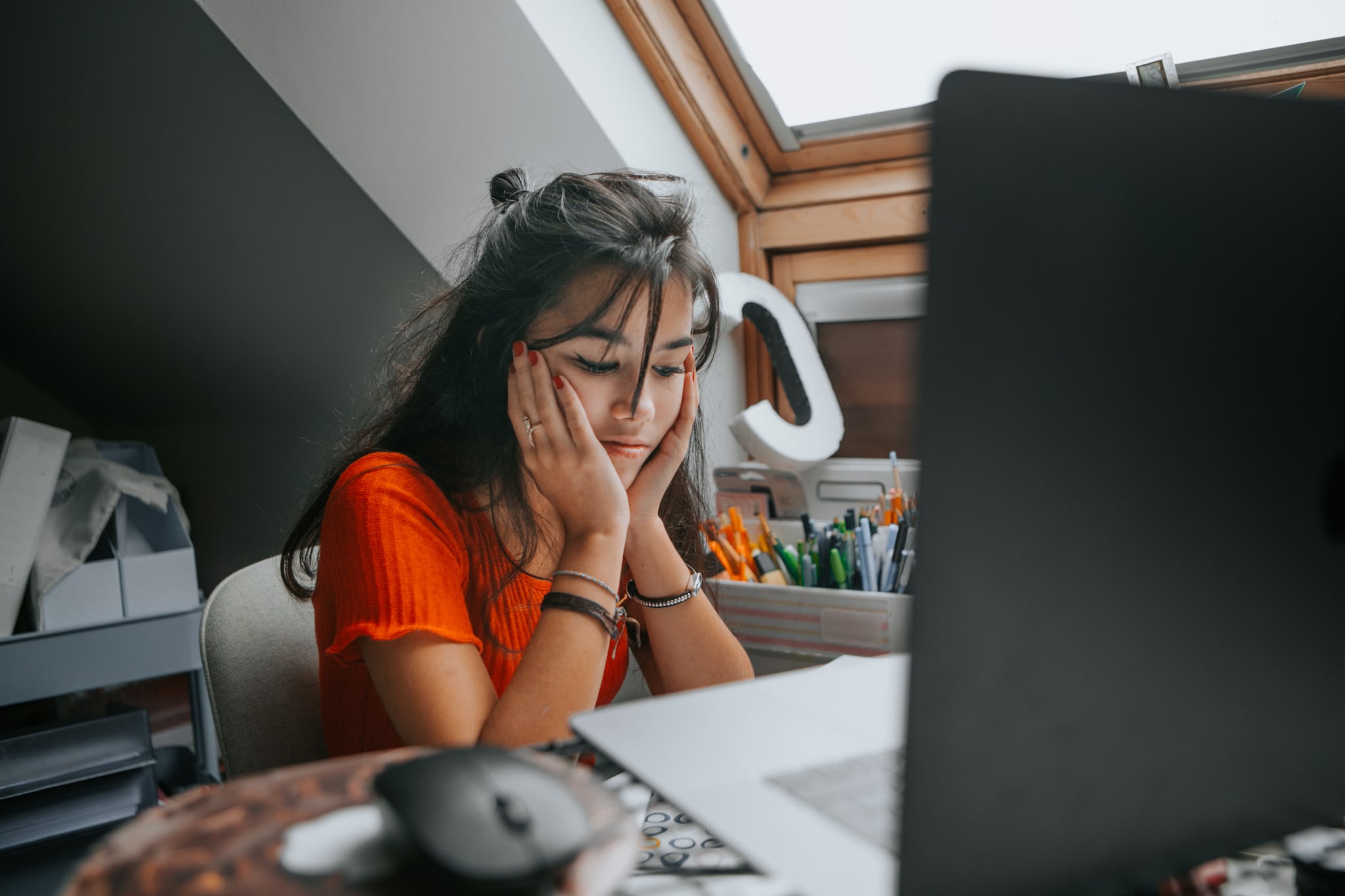Products You May Like

Until only recently, I kept a big aspect of my anxiety hidden from the world because I was deathly afraid of the consequences I would suffer if I talked about it. I was already fearful of the judgment I may experience from opening up about my anxiety, but this was huge. What would people think? The anxiety of this backlash made me feel physically ill, and I felt like there was no one I could turn to who would understand.
I’m talking about intrusive thoughts, which the Anxiety and Stress Disorders Institute of Maryland says “become obsessive, provoke fear and shame, and often lead to doubts about sanity, control, motives, character and safety.” They’re common in those struggling with general anxiety, post-traumatic stress disorder, panic disorders, and obsessive compulsive disorder.
A majority of my life has been spent dealing with anxiety, so as long as I can remember, this symptom has always affected me. I never understood why frightening images and scenarios would pop into my head, leaving me anxious and scared. I didn’t know I was experiencing intrusive thoughts or why they were disrupting my reality.
People who experience anxiety often experience these episodes, during which they see an alarming event playing out in their head. These intrusive thoughts are frightening scenarios we create, causing us to think of harmful things we might do to ourselves or people we love.
The thing is, though, we would never act on these thoughts, and we know that, but we feel the fear as if they are really happening, and they make us incredibly uncomfortable. These thoughts are an automatic reaction and completely out of our control. Our brains become a movie reel of thoughts and actions we play out in our mind, and we can’t look away.
When I was a kid, these intrusive thoughts came in the form of monsters, like the ones you see in movies. Despite knowing monsters didn’t exist, they came alive in my mind and gave me physical symptoms of fear. Sometimes it would get to be too much, and I would hide under my covers and cry at night. I knew in my mind nothing could hurt me because there was physically nothing there, but I couldn’t understand why these images haunted me.
I just wanted to get to my destination, but these thoughts would keep running through my mind, and I couldn’t stop them.
As I gained more life experiences, my intrusive thoughts developed into other fears. Now that I was older, these thoughts turned into new scenarios, ones that felt more real. For example, when I started driving, I’d see myself veering off the road, hitting a side rail, flying off a ledge, or running head-on into a semi. I didn’t really want to do any of these things. I just wanted to get to my destination, but these thoughts would keep running through my mind, and I couldn’t stop them.
I’ve learned that these intrusive thoughts are our brains’ coping mechanism for fear. They distract us from the anxiety we are feeling in real life with a fictitious event we can focus on instead. This is your brain’s way of trying to help you with the anxiety you’re experiencing in real life. It’s as if your brain is telling you, “Look, I know you’re afraid, but it could be worse, so whatever is going on isn’t that bad.”
Believe it or not, my childhood monsters have followed me into adulthood, and I still see them when I get anxious. Because I’ve been experiencing them for so long, I’ve mostly become numb to their effects. However, I do pay attention when these intrusive thoughts surface, as it’s an indication that my anxiety is off the charts and I need to stop and assess myself.
I’ve opened up about it to only a few of my closest friends; one has anxiety and confirmed that she herself experiences the same thing. She thought there was something wrong with her, like I did, and didn’t dare tell a soul for fear of judgment and ridicule. It was relieving to both her and me that we were not alone.
I want those who don’t experience intrusive thoughts to know this is not something to be alarmed about. We are in no way looking to hurt ourselves or anyone else; we are just trying to cope with our anxiety. If someone close to you experiences these intrusive thoughts, just love and support them. That understanding will help ease the anxiety we feel from even having these thoughts. Know, though, that this is not a problem you can solve; this is a process that we will go through regardless.
If you struggle with intrusive thoughts, share them. The more we share these experiences, the better we can understand ourselves and others and the more we can help one another. Know you are not alone.
For resources and information about intrusive thoughts, please visit the Anxiety & Depression Association of America.
